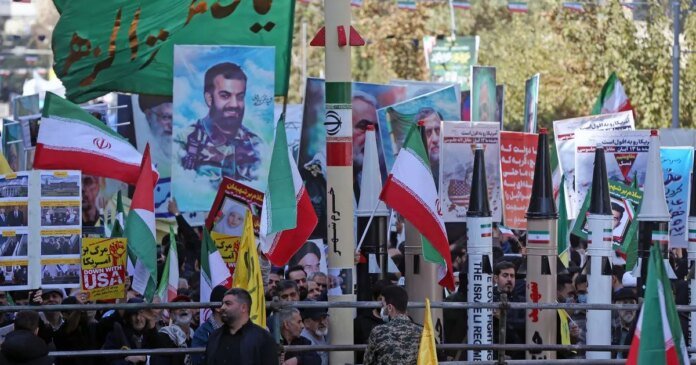Iranian rebels are optimistic that the fall of Tehran’s regime could pave the way for a democratic system. In the 1950s, Prime Minister Mohammad Mosaddegh attempted to introduce constitutional reforms that aimed to limit the Shah’s power. However, a coup in 1953 reinstated the Shah as the ruler, derailing the progress towards a democratic monarchy and a functional parliament.
Tehran has been a focal point of instability in the Middle East, largely due to the influential Islamic Revolutionary Guards Corps seeking to expand its reach. Since 1979, the Shia regime has bolstered its military presence, extending its influence from Tehran through Iraq, Syria, and into Lebanon.
The well-funded Hezbollah proxy force, supported by Iran, has posed a continuous threat to Israel, particularly along its northern border. In Yemen, Iranian-backed Houthi rebel fighters have also emerged as a significant challenge to both Israel and its Western allies.
Recent conflicts, such as the Gaza war, have exposed Iran’s vulnerabilities, with its proxy forces suffering significant losses. Economic sanctions have further undermined Iran’s hegemony in the region.
The weakening of the Tehran regime, exacerbated by US-led airstrikes targeting its nuclear ambitions, has created an environment ripe for potential uprisings. This shift could lead to various outcomes, including internal conflict, an IRGC takeover, or the emergence of a new democratic society.
Central to these potential changes is the need for senior IRGC officers to defect swiftly. Planners are cautious of the potential descent into violence similar to the prolonged conflict witnessed in Syria following the uprising.
The collapse of the Tehran regime could plunge Iran into chaos, possibly triggering a multi-faction civil war akin to the aftermath of the Syrian and Iraqi conflicts post-2011. Such a scenario could lead to mass displacement and a refugee crisis impacting neighboring countries like Turkey, Iraq, and potentially Europe.
The vacuum created by a weakened regime might attract groups like the Islamic State, unless a swift insurgency is quelled or the IRGC leadership is persuaded to step down. However, there is growing support within Iranian society for a peaceful transition away from the current regime, with neighboring countries having a vested interest in a stable post-regime Iran.
